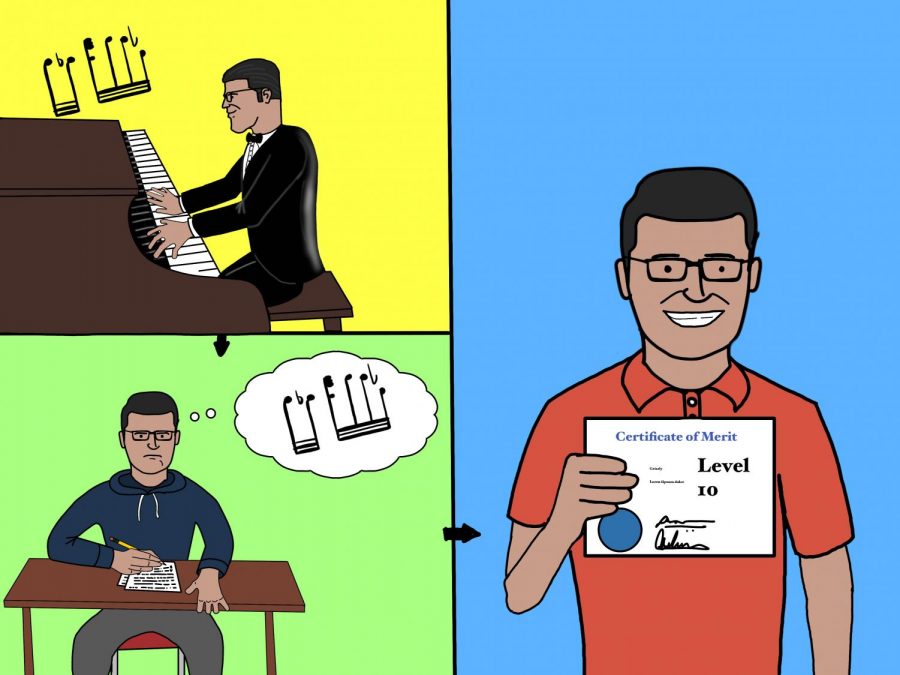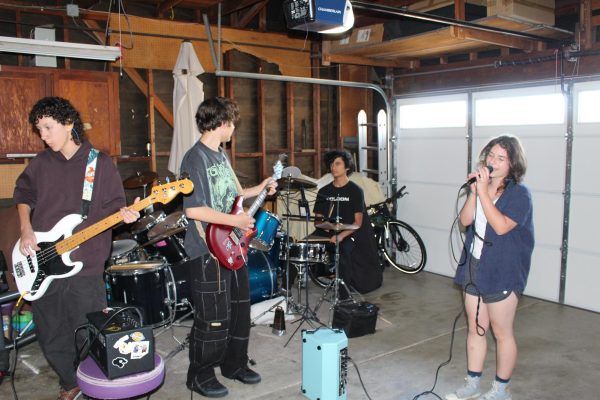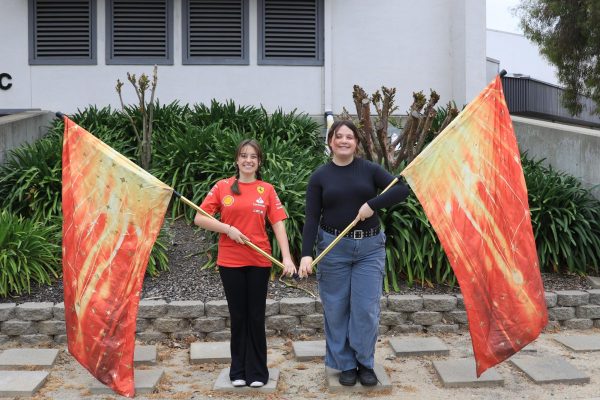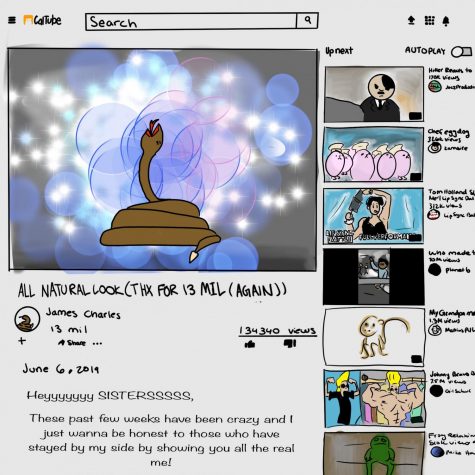When music mixes with merit
Students are tested on music theory and musical ability during the Certificate of Merit test, which goes up to levels 10 or 11.
Playing a musical instrument is difficult enough.
But the many Cal students who take the Certificate of Merit test go above and beyond to demonstrate their musical skills.
Certificate of Merit, or CM, involves two main parts: live performance and a written test. It is offered for 13 different instruments, including piano, flute, and cello.
The test requires students to improve their performance, technique, ear training, sight reading/singing, and music theory, according to the Music Teachers’ Association of California, which administers the test.
“I was glad I did it,” junior flute player Ahya Snyder said. “I’m glad that I got to be able to try doing it. I would recommend it.”
The process begins when students are signed up for the test by a teacher in the CM system, several months before the test itself.
Students then work with their private teacher to practice for the test. While students pay for private lessons, the test itself is free and takes place on two separate days a few weeks apart.
“The first day you’re tested on music theory and then the second day is actual playing,” Snyder said. “You have to play scales and sight read and you also have to play three songs that are from different eras.”
Sight reading means students must play a piece they haven’t played before, without practicing beforehand. The number of songs they are required to play varies depending on the instrument.
To pass a level, students must demonstrate proficiency in each section of the test.
Hyunjung Choi, who has been a CM evaluator for 20 years, said students must receive at least 70 percent on their music theory and at least a score of “average” on each section of their live performance to pass the test.
Choi also appreciates students who show their love for music.
“I look for students who appreciate and enjoy the music,” Choi said. “Students who enjoy and respect music always do the best and can show their passion through practice and performance.”
The test’s pass/fail grading means the testing environment isn’t overly competitive, because students aren’t competing for first place.
“It’s you against yourself, basically,” Snyder said. “It’s not against anyone else because you don’t have to fight for one position.”
Last year, Snyder took the level 10 flute test, which is the highest for that instrument.
There are 10 or 11 levels for each instrument, increasing in difficulty as the number gets higher. As they advance in level, students are required to play more difficult songs and are tested on more material.
“For the music theory, they just add more skills,” junior Sarah Zhang said. “For example, level one all you need to know is the names of the notes, but then you start adding major [and] minor scales, you start analyzing pieces, you start adding vocabulary, and you’re adding history.”
Zhang took the CM test at levels four, six, eight, and 10 to evaluate her abilities playing the cello.
“It’s just a way to assess yourself,” Zhang said. “You want to know what skills to build up to.”
Many students also take the test to prove their skill level.
“Students get to have a certificate showing that are proficient at the level they tested at,” Choi said. “Generally, it’s hard to prove a student’s potential if only their private teacher sees them. So, music students take the test to be evaluated in a standardized test.”
Choi has said that students can prepare for the test by working closely with their teacher and by studying, but it is up to each student to decide how much to prepare.
“You practice for a few months, or maybe a year if you’re a slow learner,” Snyder said.
While Zhang appreciates the test as a way to assess her skills, she believes there are many places the test could improve.
“If you’re going to take the test on music theory, which I think is a pretty good skill for a musician to have, I feel like it’s more helpful when actually applied to music,” Zhang said.
Junior Kayla Shen questioned the usefulness of the test.
“When preparing for the music theory test, I just memorize everything and after the test, I just forget all about it until the next year,” Shen said. “I don’t think it really helped my music ability that much.”
Another possible downside to the test is the time students take to practice. The volume of material was more of a challenge for Snyder, since it was her first year taking the test.
“I wasn’t the kind of person who had been doing it cumulatively so I didn’t know if I could do it,” Snyder said. “But my teacher taught me music theory one through 10 in like two months and then I also practiced my songs and scales.”
Snyder said the music theory portion of the test was particularly hard for her.
“If I had done it for a longer time I wouldn’t have been so stressed because it was a lot of stuff,” Snyder said.
Regardless of the time spent preparing for the test, most Cal students agree CM is a transformative experience for those who enjoy music.
“[CM] gave me something to be proud of,” Snyder said.









